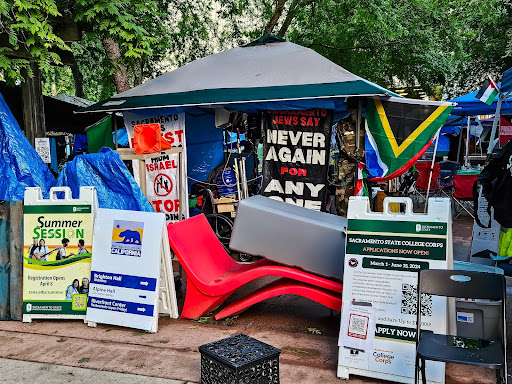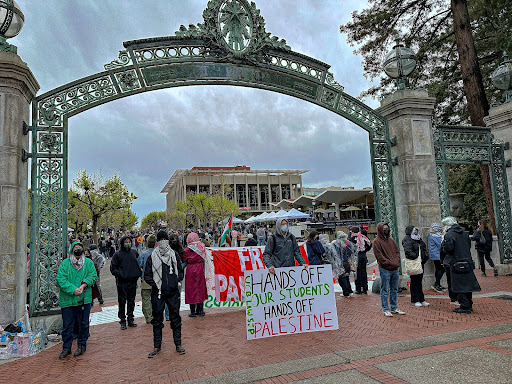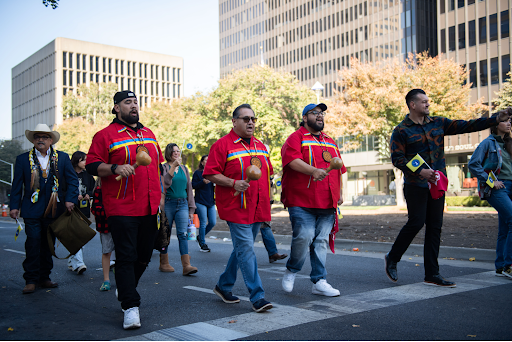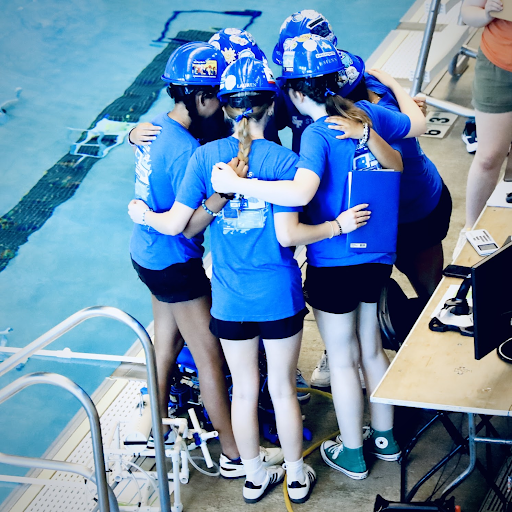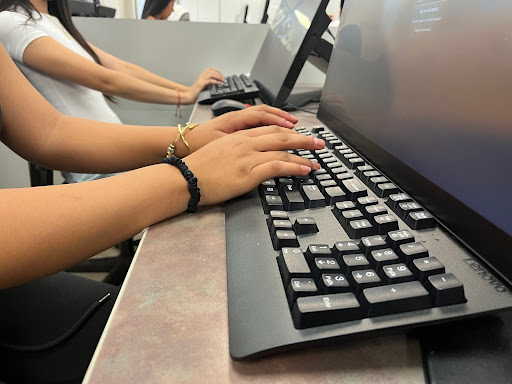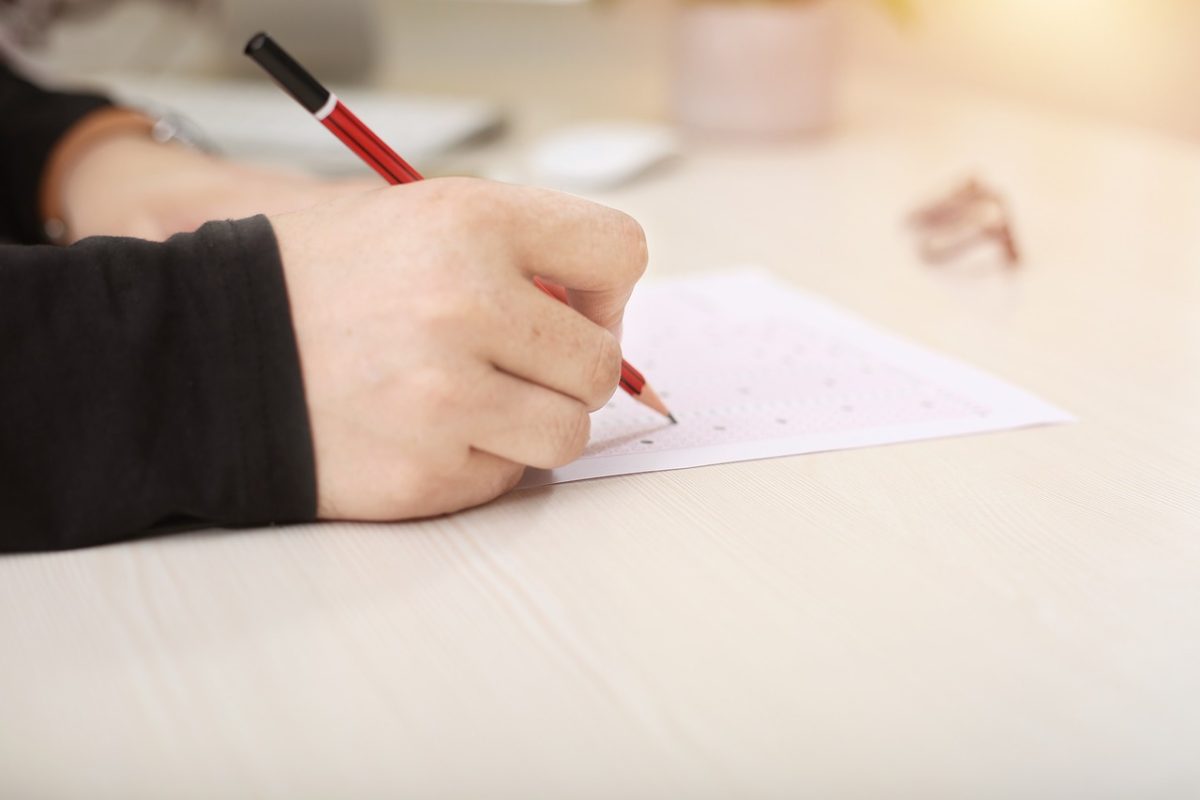University students across the nation are protesting against the war in Gaza and for divestment from Israel after students were arrested for Gaza solidarity encampments at Columbia University earlier this spring.
According to CBS news, Hamas militants killed 1,200 people and took 250 hostages when they invaded Israel on Oct. 7.
Israel launched a full-scale attack in retaliation on a scale that has surpassed previous conflicts.
According to the news agency Aljazeera, (as of May 1), there have been at least 34,568 people who have been killed in Gaza. More than 40 percent have been children (at least 14,500 children killed), and another nearly 25 percent have been women.
Since then, students affected by the conflict on both sides have advocated for their respective beliefs and ideals. However, encampments (resembling those from the Vietnam War era) all over the country are popping up.
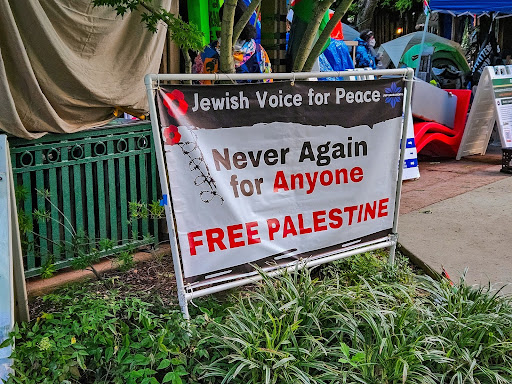
With finals week approaching earlier this spring, students at Sacramento State University started up an encampment by the university’s library, inspired by the countless protests popping up both inside and outside the nation.
Mercy Sosa, the Daily Hornet’s student news website’s editor-in-chief, had been at the scene for two days when the encampments started at Sacramento State. She’s been covering what had happened as the university allowed the encampments to be open until May 8.
“Sac State is allowing students to conduct the encampment as long as it’s peaceful and follows campus safety guidelines,” Sosa said. “Students are mostly siding with Palestine.”
Hamzah, a Sacramento State student and member of “Students for Justice in Palestine” organization, who asked for his last name to be disclosed, said the images from the conflict have been excruciating – and the’ve been the source of the waves of pro-Palestinian sentiment.
“On social media, you’re gonna see videos and photos on the ground,” Hamzah said. “It has really been a huge tool for activists.”
With the spread of these on-the-ground videos and photos these past eight months, Hamzah said the perspectives of many U.S. observers has shifted toward the Palestinians.
“It really has changed everything,” Hamzah said. ”I just found myself sobbing at night, thinking about the children.”
Far beyond what has been shown in the media, Hamzah finds himself stuck in the midst of it all, unsure how to move forward, seeing how people around him react to this situation.
“I find myself confused as to why people aren’t standing up more … I’m sure whatever I’m going through, it doesn’t even like match what one or two people in Gaza are facing,” he said.
Despite all of the possible backlash and repercussions that come with participating in these encampments, there has been a sole reason behind why he keeps participating in this cause.
“Personally, I am more scared of standing in front of my God, and then asking me where were you when your brothers and sisters were getting killed,” Hamzah said. “Or having my children ask me, and I won’t be able to tell them anything.”
He reports that there has been no violence, unlike other college campuses, which have been facing violence and conflict on campus.
“We did have somebody from Turning Point USA and a couple of people with Israeli flags coming past us,” Hamzah said. “We just tried to protect the camp . . . if they’re just walking forward, trying to get us agitated, we’ll just ignore that.”
However, this doesn’t hold true for all encampments. Amira Hammad, a graduate student, has been participating in these world-wide encampments – one of which ended in a way that that many people vehemently disagreed with.
Speaking as a student who was a part of the University of Geneva community Hammad said, “(The university) cut the negotiations about our demands and called the police on us.”
“They don’t want to take a new statement about the situation going on, which is a genocide . . . Students definitely do not side with the official statements of their university.”
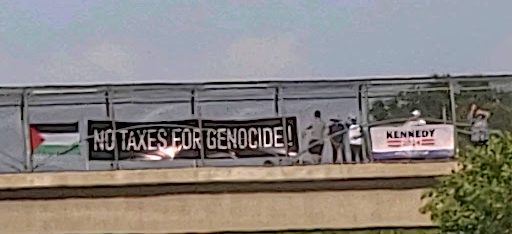
Zoya M. (who requested her last name not be published), is a half-Ukrainian and half-Palestinian university graduate. She talked about how she feels towards the encampments that have been popping up across the world.
“There’s so much power in following students who are taking part in these encampments, as they are the ones who are sharing the true story that the media tries to portray differently,” Zoya said. “These encampments are filled with so much passion for justice, and the media tries to show them as spreading hate.”
With the Ukrainian-Russian war, Zoya had said she had felt that her side of the identity was justified, while she had to defend her Palestinian identity. However, through the voices of the students, she finds that the narrative is changing entirely than how it was before.
“The global narrative is changing, making it impossible to silence the Palestinian movement as it grows worldwide,” Zoya said.“The widespread support for Palestine is empowering people from all around the world to speak up.”
